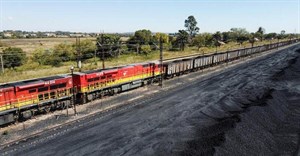Trending
Elections 2024
Jobs
- Social Media Manager Cape Town
- Social Media Specialist Pretoria
- Social Media and Community Manager Weltevreden Park
- Copywriter and Content Producer Cape Town
- Social Media Content Creator West Rand
- Junior Social Media Manager Cape Town
- Customer Sales Consultant Nelspruit
- Content Creator Cape Town
- Social Media Manager Cape Town
- Marketing and Social Media Manager Cape Town
New tyre manufacturing industry negotiations deadlocked
Parties could not reach agreement on an array of issues, ranging from wages to specific benefits and conditions of employment, and the facilitator has issued a certificate confirming the dispute remains unresolved.
The certificate enables the unions involved in the negotiations, namely NUMSA and Solidarity, to embark on legally protected strike action within 48 hours of notice as prescribed by law. NUMSA originally demanded a 20% increase for all its members, Solidarity 14%, and employers offered 5.6%. NUMSA's current demand is a double-digit increase (10% plus) for three years, and employers have offered 6.5% for year one, and CPI + 0.5% for the second and third years. Other issues in dispute include the employer's insistence to apply some sort of retardation method to employees who are being paid above the maximum of their grade, which was applied in the previous agreement.
Retardation factor is crucial
"This retardation factor is crucial to ensure the wage model that we use in the industry does not run away completely from us and we make our industry so expensive that we have to close our factories due to the highest wages already being paid in the industry. We even pay higher rates of pay than Auto and we are a component supplier to them" says van der Walt.
Similarly, employers have requested that the pay rates payable to employees working a normal scheduled seven-day work week, be regularised to what the BCEA prescribes, which is normal time payment on a Saturday and 1.5 times the normal rate on Sunday. "It is regrettable that we were unable to agree on a wage agreement after almost six months of negotiations and it seems we now will follow a familiar pattern where the tyre industry loses four to five weeks of production during every year of wage negotiations, and with that millions of rand in lost revenue and unnecessary costs incurred due to chemical processes being shut down, before an agreement is reached.
Committed to try to resolve the issues
"We, however, remain committed to try to resolve the issues and have agreed to further talks next week, and, if need be, the following week, but we cannot accede to these demands that are simply unaffordable and quite frankly risk the long-term sustainability of our respective organisations. The continued inflow of cheap products from the East that evades the proper scrutiny of the authorities in terms of declared values for duties and taxes, has had a devastating effect on our industry.
Five years ago we were able to supply to at least 80% of the South African market. The cheaper imports have cut that to less than 50% and most of our factories, as a consequence, are not running at full capacity, which is costly and inefficient. The irony is that as an industry we continue to invest in machinery to improve efficiencies and quality, and try to secure employment, whereas the cheaper imports simply dump their products here, which only benefits the consumer in terms of price, and not the country as a whole. For us as an industry it is about survival" concludes van der Walt.
The companies being represented in these negotiations are all manufacturing new tyres in South Africa. They are: Bridgestone South Africa, Continental Tyres South Africa, Goodyear South Africa, and Apollo Tyres South Africa.



















